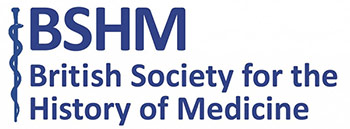Having never visited Wales before, 22 year old Robert Drane moved to Cardiff on 8 February 1856, and the history of pharmacy – and pharmacy education – in Cardiff are very much tied up with him. Briony Hudson explains.
A contemporary described Drane as “a young man with a charming manner, a striking appearance and a vocabulary and diction that are the possession of but a few of the world’s geniuses.” He had, however, departed abruptly from the respected London firm of Allen & Hanburys after breaking house rules in the respected Quaker-run establishment by staying out after 11 pm and going to the theatre.
Drane first became assistant to the apothecary Griffith Phillips on Duke Street, Cardiff, but two years later, he moved to his own pharmacy at 11 Bute Street, Cardiff. In 1867, aged 34, he opened new, purpose built premises at Crockherbtown (renamed Queen Street in 1886), close to Cardiff Castle.
At that time, those wanting to make or sell medicines usually undertook an apprenticeship with an established chemist, as Drane had done. The Pharmaceutical Society, founded in London in 1841, had established a register of members, but it was voluntary. The Society also opened its School of Pharmacy, the first in the country, at its Bloomsbury Square, London, headquarters in 1842.
There were no pharmacy schools in Wales, although the Pharmaceutical Society and its London school had a Welsh presence from the start in the person of Theophilus Redwood from Boverton, Glamorgan, as the first professor of pharmacy, a post he held until 1885.
The Pharmacy and Poisons Act
In 1868, Parliament passed The Pharmacy and Poisons Act that required those wanting to practise as pharmacists to register with the Pharmaceutical Society in order to be able to dispense particular scheduled drugs, such as opium and strychnine. This Pharmaceutical Society register was then only open to those that had passed its minor or qualifying examination. Pharmacists, like Drane, who had been in business before 1868, were able to join the register without jumping this educational hurdle.
Drane called on the three other pharmacists in Cardiff in an attempt to produce some formal training in chemistry, pharmacy and botany for their assistants. His cooperative scheme intended that there would be nothing to pay, and the assistants would meet two nights a week to learn chemistry and pharmacy. They would also join Drane in Sophia Gardens, Cardiff’s first public park, adjacent to Cardiff Castle, at 7am on two mornings a week to learn botany, a class that he had already instituted soon after settling in Cardiff.
According to Drane’s later account, the scheme fell through because of the “indolence of the assistants” and “the ignorance of the pharmacists.” Despite this, his efforts had laid the foundation for pharmaceutical education in South Wales.
Aspiring pharmacists in South Wales had to wait for local technical education to provide what was missing. Cardiff Borough Council had begun running science and art classes in 1866, but it seems that formal pharmaceutical education in South Wales was unavailable until the establishment of a College of Pharmacy in Cardiff in 1919, five years after Drane’s death in 1914.
In addition to pharmacy, Drane had a strong interest in ceramics and co-wrote a history of the ceramic factories of Swansea and Nantgarw. He is also considered to be the founding father of the Cardiff Naturalists’ Society, which was established in his shop at 16 Queen Street, in 1867, according to many documented sources.
In 1927, the Cardiff Naturalists’ Society unveiled a plaque in his memory on the front of Drane’s shop in Queen Street (below).
Briony Hudson, director of Amersham Museum, is a pharmacy historian, Honorary Lecturer at the Cardiff University School of Pharmacy and Pharmaceutical Sciences, and author of the publication that marked its centenary in 2019. This article is based on her presentation on the history of pharmacy education in Cardiff to the History of Medicine Society of Wales summer meeting on 29 June 2023.
With thanks to the Cardiff Naturalists’ Society for the photographs. See the Society’s web site for more information on Drane’s many interests.


